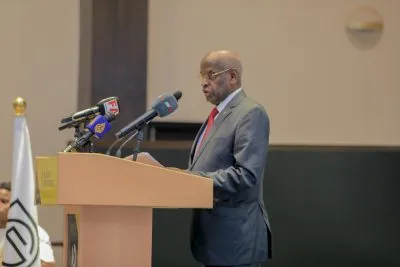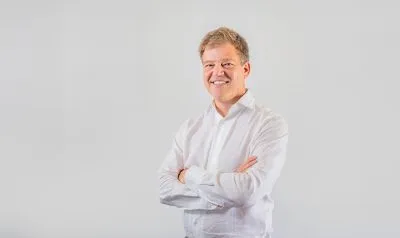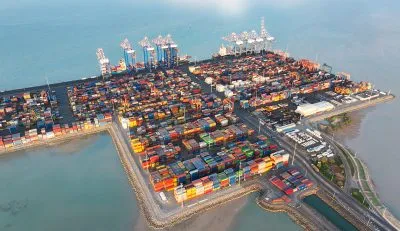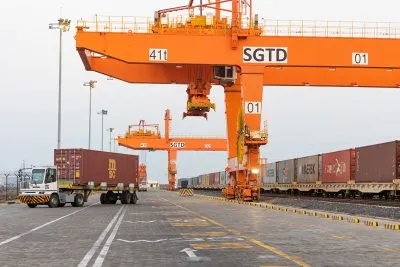African Business: Justice is essential in a vibrant democracy. Is this the case in Senegal?
Senegal has a proud history [in terms of our judiciary]. Since independence, we have opted to have an independent judiciary, a judicial authority, with the necessary infrastructures to support it – that is courthouses, courts. Very early on, justice played its part in the construction of the state, democracy and the rule of law.
Senegal is fortunate to have men of justice with an excellent reputation. We have many magistrates of great value. Our jurists have proven themselves in international courts. The late Judge Keba Mbaye sat on the International Court of Justice. Senegalese magistrates drafted the texts governing the United Nations courts and the criminal courts of Rwanda and have sat on them. Not to mention our clerks and lawyers. We have one of the best bar associations in French-speaking countries. Overall, Senegal is a country that can be proud of its judiciary and its justice system.
The justice system seems to be at the mercy of the authorities and it has been accused of being used as a tool to muzzle political opponents. How do you answer these claims?
First of all, we must avoid reducing justice to a few cases. It is not because there have been two or three politicians who have had problems with the Senegalese justice system that we must base all our assumptions on these three cases. That is, cases where politicians are involved.
Justice is first and foremost constitutional. There is the administrative justice, which judges all the acts of the administration, the decrees of the president of the republic, the acts of local authorities. And commercial justice for citizens who conduct business. And family justice, which is the case of divorces. And social justice to defend the rights of workers.
Now, to talk about these cases, a citizen who does politics is not above the law. When you are accused of rape or defamation, there is the principle of equality before the law. Legal cases follow their course regardless of your status. There is no impunity because you are a politician, whichever party you are with.
But the justice system is singled out?
But it’s normal for the justice system to be singled out. I read a recent survey that took place in a European country where only 30% of the public were satisfied with the justice system! Justice is often criticised because it is not understood, because its language is technical and complicated, because it is complex and slow, because it is expensive and unpredictable. When we are happy with the decision of the judiciary, we applaud it; otherwise we criticise it. I often say to magistrates that whatever you do you will be criticised, do your job properly and ignore the criticism.
But trust in the judiciary is very important. And citizen’s confidence in justice must be reinforced. We have to prove to the citizen that he or she can trust the justice system of their country.
The ministry has a limited budget. The prisons are full. The courts are overwhelmed. How do you overcome these challenges?
It must be said that Senegal benefited from the proper supporting infrastructures very early on, notably the courthouse and the courts. But it must be remembered that these infrastructures are old because most of them date from the colonial period, as do the prisons, such as those in Saint Louis and Dakar.
Since independence, Senegal has hardly built any prisons. Previous leaders did not see this as a priority. It is only the current administration who has decided to properly modernise the judicial infrastructure. Today, there is a programme – the Programme Modernisations des Infrastructures Judicaires (PROMIJE) – with a budget of 250 billion CFA ($420m) over 10 years. This involves the construction of modern courthouses in all regions of the country, to international standards.
Then, there is a prison construction programme; about ten prisons will be renovated. The prison in Fatick is almost 90% finished; the one in Diamniadio will be completed before the end of the year.
We are also building specific infrastructure dedicated to house children who have issues with the law. It has now become the Directorate of Judicial Protection. The ambition of the head of state is to modernise the functioning of justice by introducing digitalisation. He wants an E-justice system, with much less paperwork, where most of the procedures are done through digital means. We have a programme to digitise the criminal records where each Senegalese can get hold of his or her “extract” without having to go anywhere.
We have introduced electronic bracelets to avoid overcrowding our prisons. The Senegalese will be able to continue to work and live their lives while remaining at the disposal of justice. These are important steps forward.
Is there strong opposition to wearing the bracelet?
I am not aware of any such strong opposition.
Is it a priority?
Yes, it is a priority. I know that people like it. When you tell someone they can go to prison or wear an electronic bracelet, they choose the bracelet. That for me means there is no strong opposition. It is not imposed on anyone. You are free to choose. Choosing freedom with an electronic bracelet is better than going to prison. I think that this electronic bracelet cannot be contested.
Peace, security and the rule of law are the most important considerations for any investor. How do you reassure investors?
Senegal has a solid reputation. The wealth of Senegal is its men and women. We are, by the grace of God, a stable country where there is no civil war, no military coup, no mass political violence. We are a country known for its political stability and democracy. We have been holding multi-party elections for 60 years.
The judiciary is still standing. If there are troublemakers, they are arrested and tried. In a democracy, in a state governed by the rule of law, the law remains in force. The Senegalese people are sovereign.
You are the guarantor of a liberal democracy that is the pride of the Senegalese and an example for the whole of Africa. What are you doing to consolidate it?
We try to continue to stay on the path we have been on. We are not inventing anything new. Our democracy and our judicial system are a legacy that we have had since independence. Our country has opted for the rule of law. We are in the process of consolidation and modernisation; that is the key word.
The President of the Republic does not want modernisation to be just a slogan. We need to modernise the texts that govern the organisation of justice; this is why we have created a new judicial map.
In Senegal, there are two fundamental rules that express modernisation. One is the criminal procedure: from now on it is forbidden to charge an individual without the presence of his lawyer.
Secondly, during the investigation, citizens who are in trouble with the law do not go to prison if they choose the electronic bracelet; this helps to relieve [pressure on] the prisons.
Read more about Senegal in our Senegal Dossier.
Want to continue reading? Subscribe today.
You've read all your free articles for this month! Subscribe now to enjoy full access to our content.
Digital Monthly
£8.00 / month
Receive full unlimited access to our articles, opinions, podcasts and more.
Digital Yearly
£70.00 / year
Our best value offer - save £26 and gain access to all of our digital content for an entire year!

 Sign in with Google
Sign in with Google 



